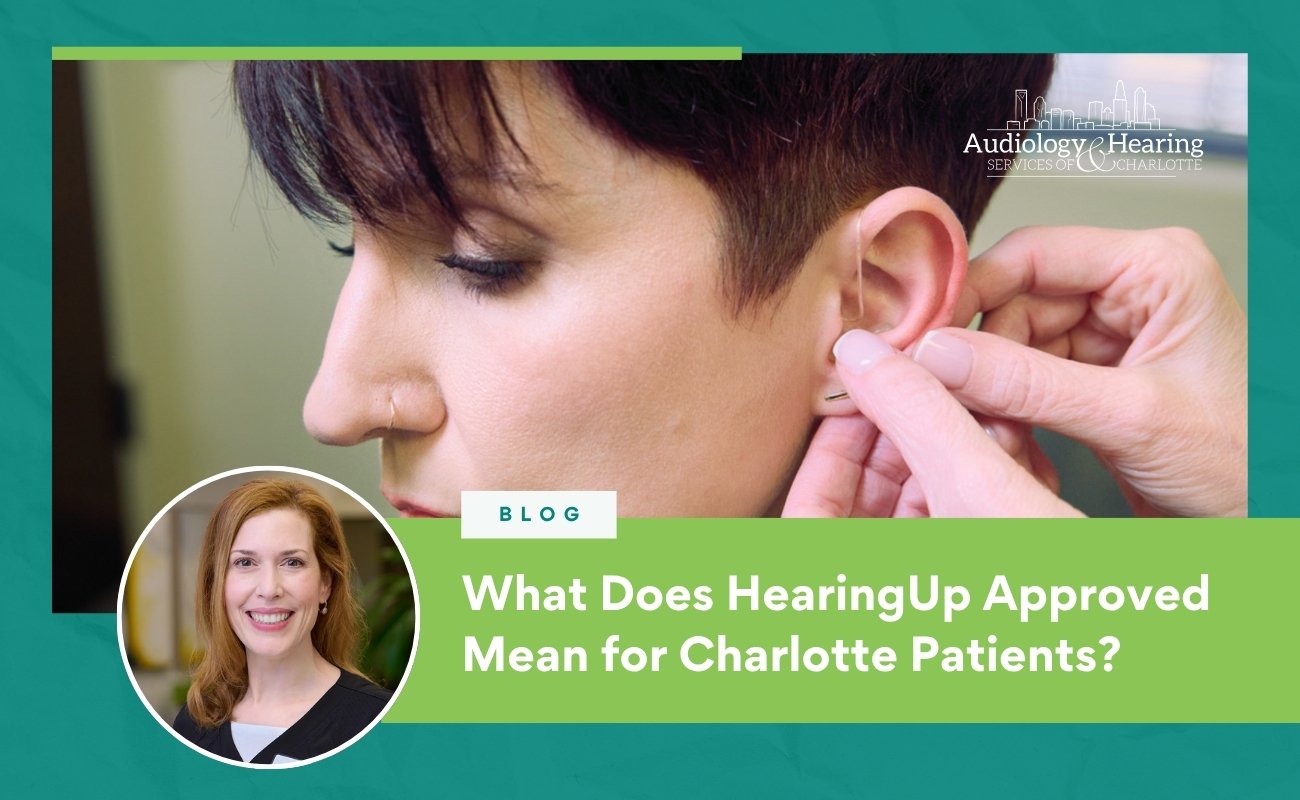
OTC Hearing Aids — What do you need to know?

What do you need to know about OTC hearing aids?
Over-the-counter (OTC) hearing aids are devices that make sounds louder.
- Are approved for adults 18 years of age and older
- Are indicated for individuals with mild-to-moderate hearing loss
- Are available in stores or online and the consumer is responsible for setting up the device, including fitting and tuning the sound
While a hearing evaluation is not required, the FDA stresses that it IS recommended to find out if an OTC hearing aid device will be appropriate for the consumer. This would include ruling out issues like wax blocking the ear canals, fluid in the middle ear space, or medical conditions causing hearing loss that can be treated surgically. Individuals interested in buying an OTC hearing aid can find a list of audiologists in their area to complete a comprehensive hearing evaluation here: https://members.audiology.org/cvweb/cgi-bin/memberdll.dll/info?wrp=find-an-audiologist.htm
OTC hearing aids are meant to be less expensive than professionally fitted hearing aids. Reasons for lower cost include technology differences and buying only the device and not any professional services. Current estimates are that OTC hearing aids will cost between $300 and $600 per device, although devices like Eargo can cost $2650 and Lively is $1695. Consumers can find hearing aids through audiologists – with appropriate services – at this price point and below.
Studies have shown that it takes an average of seven years for a person to come to terms with hearing loss and pursue treatment. My hope is that allowing for some amplification sooner in that time span will allow those experiencing difficulty to get the help they need. We hear with our brain, not our ears, and the sooner we give that speech processing center of the brain the auditory stimulation it needs, the more we can keep decline in speech understanding and processing at bay.
Many of you come to see us because you know we care about your hearing health and will be honest with you. Honestly, we wish hearing aids alone could help people hear. Truth be told, hearing well through hearing aids is a service and maintenance game. If hearing aids alone could solve your hearing issues, we would probably be out of business.
Why, you ask?
Hearing aids require programming to your hearing prescription and to be physically fit to the unique ear canal size and shape of your ears. Hearing aid mechanics, exposure to moisture and wax, ear wax build-up in your ears, and ALL the maintenance required to continually manage this ever-evolving situation are why we get to know our patients so well.
The next time you wonder if purchasing hearing devices online, over the counter, without service, and/or through a big box store, remember that it's all about getting them fit, serviced, and maintained. We eventually end up seeing those who have tried any/all of the above.
With that said, our recommendations to anyone considering OTC hearing aids are:
1-First get a diagnostic hearing evaluation from an audiologist. There will be a charge for this, which may be covered in part or completely by insurance. Avoid the “free” hearing tests advertised as they are done as a sales tactic and not a medical evaluation of your hearing.
2-OTC devices may be appropriate for physically and cognitively healthy individuals over age 18 with mild to moderate losses that are symmetrical (one ear is no better than the other).
3-When the above criteria are not met, if there is tinnitus (noise in the ears), if there are other atypical ear/hearing/balance symptoms are present, and/or if their hearing loss is causing a significant impact on their quality of life, they should seek rehabilitative care from an audiologist.
Our job as your audiology care team is to meet you wherever you are on your hearing journey and to help honor your true self through better hearing. That has and always will be our goal.
Dr. Karp & Dr. Saul

Melissa Karp is a board-certified audiologist with special expertise in tinnitus treatment, auditory processing disorder (APD) evaluation, hearing aid fitting and aural rehabilitation.

Related blog posts
Contact us
Get in Touch
Ready to start your journey to better hearing?



Charlotte, NC 28226



